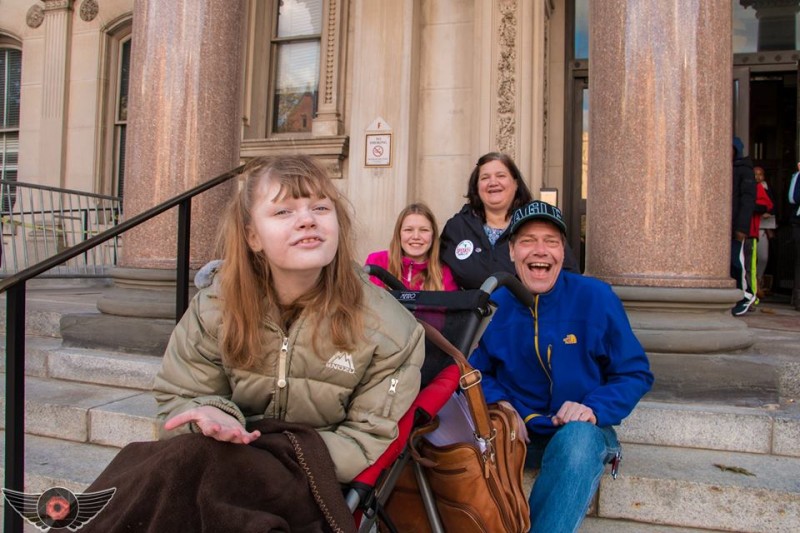On Monday, Gov. Chris Christie signed into law a bill that allows sick and disabled students to be administered medical marijuana on school grounds, on a school bus, or while attending a school-sponsored event.
The bill was introduced in June after national news broke that 16-year-old Genny Barbour from Maple Shade, New Jersey, diagnosed with severe epilepsy and autism, was not allowed to take her cannabis oil on school grounds. Genny was authorized to take five doses of medical marijuana per day.
The school district argued that it is against federal law for her to take medical marijuana, as the federal government classifies it as a dangerous Schedule 1 drug with no medicinal value.
The new law requires schools to establish rules that allow parents, guardians, and primary caregivers to administer medical marijuana (in a non-smokable form) to authorized students without being liable for criminal action.
Roger Barbour, Genny’s father, and lawyer representing his family in the case, had rejected a prior settlement offered by the school district. Mr. Barbour argued that it wouldn’t resolve his daughter’s issues.
“They wanted Lora (Roger’s wife) to drive Genny to school, drop her off there late at 9:30 a.m., instead of getting there at 8:45 or 9, when she gets there on the bus,” Mr. Barbour said. “And the reason for that would be so Lora could give (Genny) her medicine before she gets to school. They assume we would be OK with letting Genny come home on the bus in the afternoon and making her wait an extended period to have her additional medicine.”
On Monday, after the bill’s signing, Mr. Barbour wrote on Twitter, “Family overjoyed & Pumped!” and “HOORAY! Let’s Win The War Now!” He has since thanked all of the organizations and people that he states have helped get the bill signed into law.
Also, the father of 8-year-old Tatyana “Tuffy” Rivera, who is diagnosed with Lennox-Gastaut syndrome, a severe form of epilepsy that triggers up to 300 seizures a day, praised lawmakers who sponsored and helped the bill get signed. Ricardo Rivera, from Camden County, is happy that his daughter will be adequately treated.
Tuffy “can be properly medicated throughout the day,” Mr. Rivera said. “That’s an awesome victory for us, in a way.”
Mr. Rivera is aggressively lobbying to decriminalize marijuana in Camden County and surmises that it will eventually get decriminalized in the whole state of New Jersey.
Hearings to legalize recreational use of marijuana in New Jersey will be held publicly next week. Proponents hope to make New Jersey the fifth state to legalize recreational use of marijuana.
Gov. Christie has pledged to veto any attempt to legalize recreational use of marijuana in New Jersey. Gov. Christie contends that marijuana is a gateway drug that should not be legalized and taxed.
“Every bit of objective data tells us that it’s a gateway drug to other drugs,’ Gov. Christie said. “And it is not an excuse in our society to say that alcohol is legal, so why not make marijuana legal. … Well … why not make heroin legal? Why not make cocaine legal? You know, their argument is a slippery slope.”
New Jersey Senate Judiciary Chairman, Democrat Nicholas Scutari sponsored a bill to legalize, regulate and tax marijuana in New Jersey for people 21 and older. His aim is to reverse the state’s punitive marijuana laws.
African-Americans are 2.8 times more likely in New Jersey to be arrested for marijuana possession than a Caucasian (while both use marijuana at a similar rate), according to a report by the American Civil Liberties Union. The same report found that New Jersey spent $127.3 million in enforcing marijuana related crimes in 2010.



Comments
Loading…